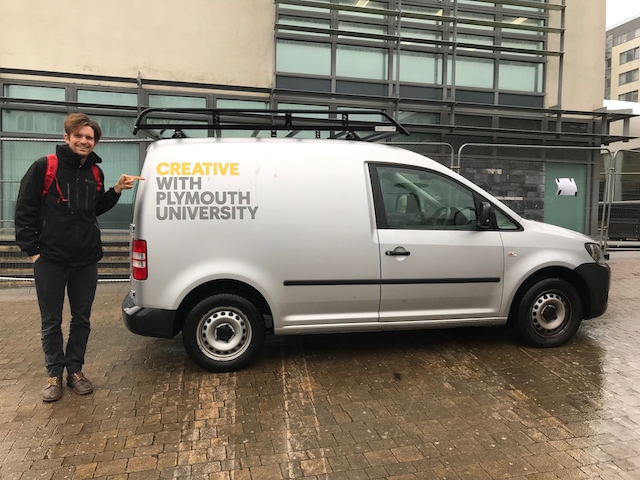Last week Dr Boksun Kim Lecturer in structural engineering at Plymouth Univesity invited me to the engineering department at Plymouth University to talk about creativity with staff and students. Boksun had attended the two-day Advanced Conceptual Design course I run at the Institution of Structural Engineers. As a result of going to that couse she asked if I could come down to share some of my thinking with the department. I was happy to be asked!
A recipe for cooking ideas
In the morning I gave a 45-minute talk on conceptual design to a group of third-year students. In this short time I gave them a quick run through my process for having ideas. After this run through I asked the students to create their own recipe for creative thinking. The idea was to create a series of steps that they can ‘cook’ from next time they are set a design project.
At the end, I asked students the number one thing they will take away from the workshop. The most popular answers were:
- They can take a structured approach to creative thinking
- Having ideas is about making connections
- Setting problems for ourselves can stimulate creative thought
- They should carry a sketchbook with them.
Here’a couple of quotes from the feedback:
Great way of improving creative thinking processes you may not see in regular university lectures – Harry Arnott
“Don’t allow the fear of failure to restric your ideas” Cameron Whitehead
Conceptual Design Teaching Focus Group
In the afternoon I ran a focus group with teaching staff. The aim was to talk about the opportunities and challenges of teaching engineering students conceptual design. As a group we identified the top topics for discussion as:
- balancing joy with assessment
- making real things that students can look back on and critique
- how to focus on process rather than solutions.
Over the course of a 1.5-hour guided plenaray session, we dug down into these challenges. As a result, we identified possible teaching strategies and techniques from which participants could choose to adopt in their teaching.
Workshops such as these are invaluable for designing CPD training for academic staff. They help me better understand both the challenges instructors face from their perspective. They also show me the possible solutions to these challenges they feel they can adopt. I am therefore very grateful to the teaching staff from Plymouth University who shared their time and insights with me.
This year at Constructivist we are planning to launch a series of CPD workshops for university teaching staff. The workshops will cover topics such as how to teach creativity and problem-based learning for engineers. This workshop will certanily influence the content of those courses.
Suggested follow-up reading
- Experience-led learning for engineers – I co-authored this report for the Royal Academy of Engineering with Ed McCann while I was at Think Up. One of the principles listed in the report talks about starting with what motivates students. It also recommends using problem-based learning. Both principles are relevant to today’s conversation.
- Enginite’s 12 principles for Problem-based learning – I am currently working as part of a consortium of universities funded by the EU ErasmusPlus programme. The consortium is called Enginite. As part of our work, we created a set of 12 principles for problem-based learning. These principles, available as twelve videos, are relevant to today’s conversation.
- Magnificent flying machines – we spoke today about how much students enjoy design tasks that involve planes or boats. In this article I reflect on the paper aeroplane exercise we ran at Imperial College Department of Civil Engineering.
- How to have ideas – I send people this article when they asked me what I do.

